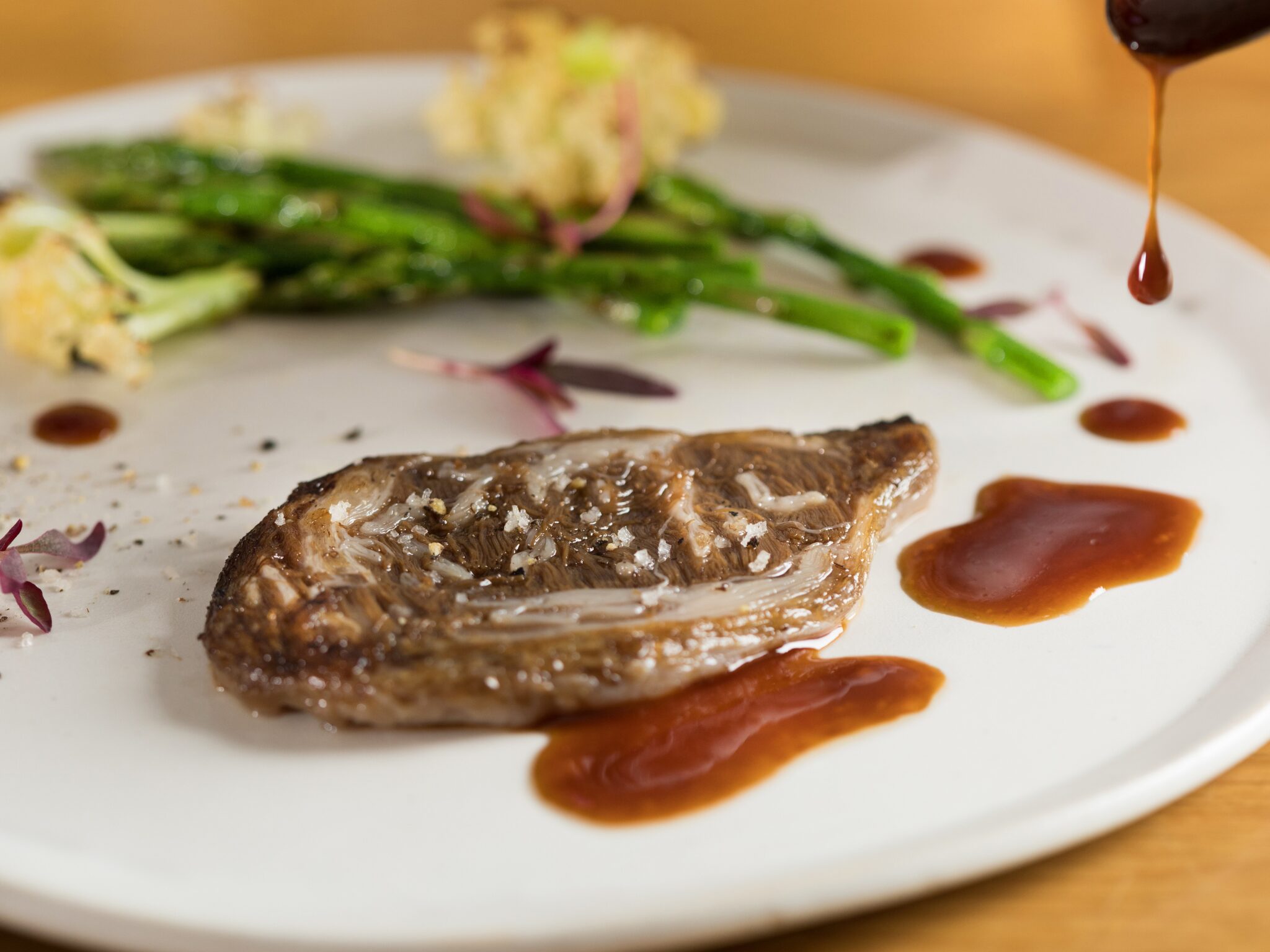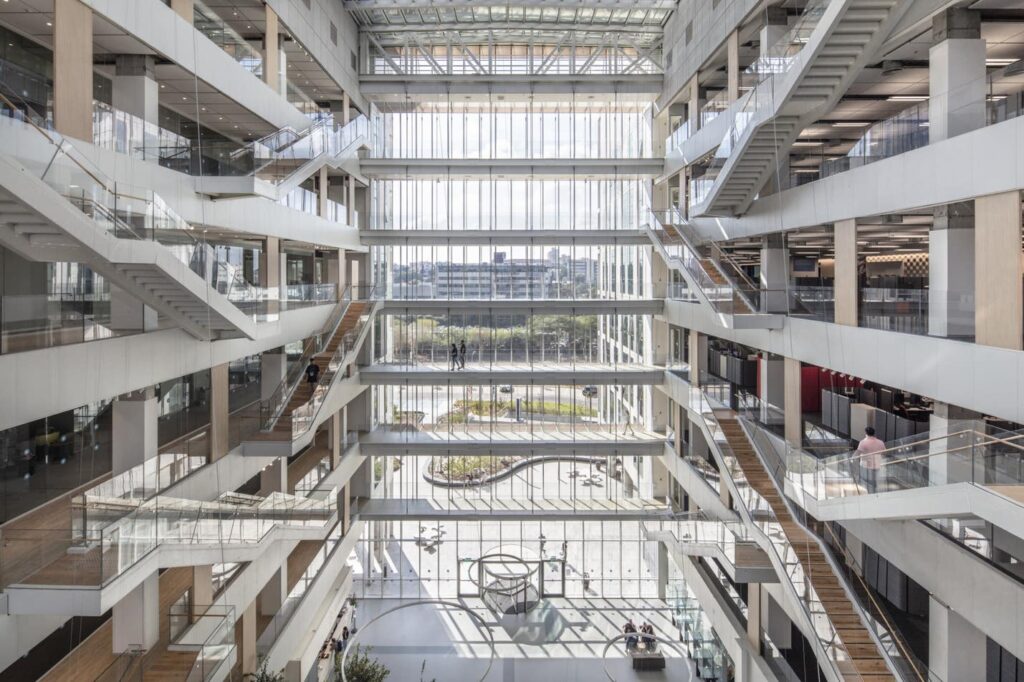
Israeli cultivated meat leader Aleph Farms is advancing its Southeast Asia strategy with an “asset-light” approach through a deal that will involve the first production facility dedicated to cultured meat in Thailand.
Aleph Farms has partnered with biomanufacturer BBGI and synbio research and manufacturing company Fermbox Bio to increase its production capabilities in Southeast Asia. The collaboration will initiate Thailand’s first plant for cultivated meat production.
The deal complements Aleph Farms’ growth strategy in the region, with the company implementing a capital-efficient approach for manufacturing to drive down costs and accelerate scalability. The Israeli startup explains that the production of cultured meat is “conducive to value chains that are decentralised, compact, predictable, and conveniently located near end consumers”. This helps mitigate supply chain vulnerabilities, bolster food security and fuel economic prosperity for local communities.
“A prudent, capital-efficient scale-up lets us navigate infrastructure investments thoughtfully, enabling sustainable penetration into key regions,” said Aleph Farms co-founder and CEO Didier Toubia.
Cost and scale-up the cornerstones of Aleph Farms’ deal

With a total of $118M in funding, Aleph Farms is one of the most well-financed cultivated meat companies. But it has chosen an asset-light approach towards manufacturing, which is centered around a hub-and-spoke model based in key markets. It acquired a production facility in Modi’in, Israel last year and penned a deal with ESCO Aster in Singapore (the world’s only approved industrial manufacturer for cultured meat) based on this approach, and has now added Thailand to its list of hubs.
“This strategy aligns with our commitment to scaling up responsibly, avoiding abrupt, extensive CAPEX investments in the process,” explained Toubia. “Ultimately, this progression aligns with our overarching goal: ensuring food security through an equitable and inclusive transition to sustainable, resilient food systems.”
Explaining this strategy, he told AFN last year: “We believe that in the next five to 10 years, companies will focus either on operations and production or on product development and branding. It will be difficult for companies to do both efficiently – especially in the current funding environment – so at Aleph Farms, we decided to focus on product development and branding and rely on external partners for production.”
This is why it decided to team up with BBGI, which focuses on cooking-oil-based biofuels and high-value bio-based products, and Fermbox Bio, which leverages microbial fermentation and synthetic biology to help businesses mitigate supply chain risks. Aleph Farms stated that collaboration with value chain partners is a pivotal element of its asset-light strategy, and the partnership will focus specifically on production enhancement, including cost optimisation and operational scale-up.
Figuring out ways to bring down prices is a key next step for cultivated meat, which needs to reach production costs of $2.92 per pound to be cost-competitive with conventional meat. While companies have managed to cut manufacturing costs by 99% in less than a decade, McKinsey analysis estimates that it will still take until 2030 for these proteins to reach parity.
“Of common animal proteins, beef delivers the highest value in global markets, so by focusing on cultivated beef, we are able to shorten the timeline to price parity,” Yoav Reisler, senior marketing and communications manager at Aleph Farms, told Green Queen last month.
“This agreement aims to support the sustainable development of Thailand and the region in every aspect, focusing on the new S-Curve, with expected governmental support,” noted BBGI CEO Kittiphong Limsuwannarot, referring to the 10 industries (including food processing) that form a pillar of Thailand’s Eastern Economic Corridor. “Drawing upon our extensive experience in designing and operating large-scale biomanufacturing facilities, we are well-positioned to operationalise the shared objectives of this collaboration,” added Fermbox Bio founder Subramani Ramachandrappa.
A milestone for Thailand’s alternative protein industry

“I think that four or five companies in this space, including Aleph Farms, have already developed scalable processes, have done a lot of work on cost reduction, and have already built facilities where they can make cultivated meet at the commercial level and comply with all the regulatory requirements,” Toubia told Green Queen founding editor Sonalie Figueiras on the Green Queen in Conversation: Cultivated Meat Pioneers podcast in September.
Aleph Farms made history last month after becoming the first company in the world to receive regulatory approval for cultivated beef, and only the third in the cultured meat sector (after California’s UPSIDE Foods and Eat JUST). It means that the startup can sell its Black Angus Petit Steak to consumers in Israel, whose production will be supported by the 65,000 sq ft plant it moved to in Rehovot, Israel, which can produce between 10 to 20 tonnes of product annually.
While research on cultivated pork is ongoing at Bangkok’s Chulalongkorn University and Mahidol University, there are no companies or manufacturers working with cultivated meat within Thailand, meaning Aleph Farms’ partnership marks a milestone for the country’s alternative protein sector. But it’s not the first time there has been a link between Thai businesses and overseas cultivated meat startups – Bangkok’s Charoen Pokphand Foods is developing hybrid proteins with Israel’s Future Meat, while seafood giant Thai Union is an investor in Aleph Farms.
A 2021 survey conducted by the latter two companies revealed that 97% of Thai consumers are willing to try cultivated meat. Meanwhile, in December last year, a 1,500-person survey revealed that only 24% of the population was aware of cultured meat. However, while 76% of them eat meat, 67% want to reduce their intake within the next two years, primarily for health reasons.
“Thailand has food technology, and we are a top player in the world, especially when compared to our population and country size,” said Jacques-Chai Chomthongdi, Southeast Asia director at Madre Brava. “Therefore, if you want to develop further in any area, the existing potential should be considered, along with changes and needs at the international level as well.”
The post Israel’s Aleph Farms Partners with Thailand’s First Cultivated Meat Manufacturing Facility appeared first on Green Queen.
This post was originally published on Green Queen.